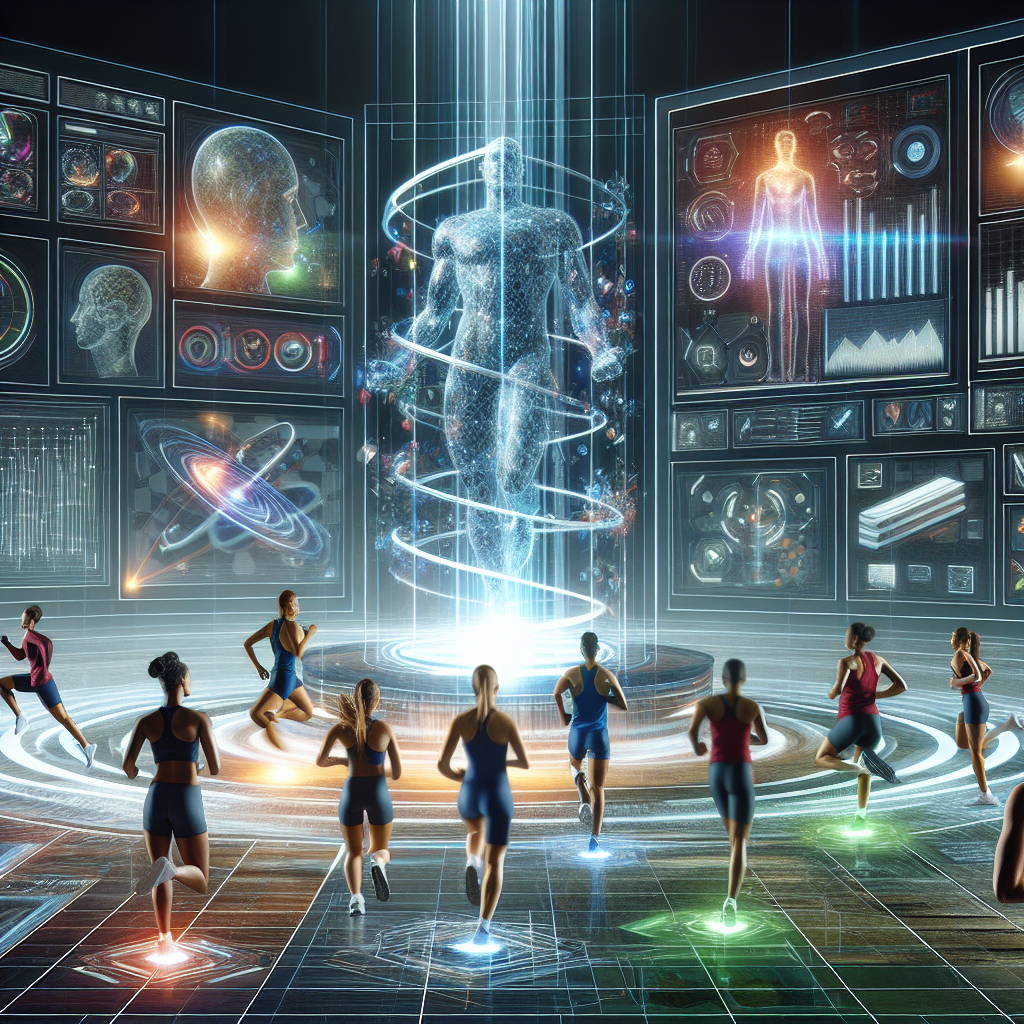AI and Athlete Training: A Winning Combination
Artificial Intelligence (AI) has revolutionized many industries, and sports training is no exception. Athletes and coaches are increasingly turning to AI to enhance performance, optimize training programs, and gain a competitive edge. By leveraging the power of AI, athletes can track their progress, identify areas for improvement, and make data-driven decisions to improve their performance. In this article, we will explore how AI is transforming athlete training and why it is a winning combination.
How AI is Revolutionizing Athlete Training
AI technology has the ability to analyze vast amounts of data in real-time, providing athletes and coaches with valuable insights into their performance. By using AI-powered tools such as wearable devices, video analysis software, and virtual reality simulations, athletes can improve their skills, prevent injuries, and maximize their potential.
One of the key benefits of using AI in athlete training is the ability to personalize training programs based on individual strengths, weaknesses, and goals. AI algorithms can analyze data from various sources, such as heart rate monitors, GPS trackers, and motion sensors, to create customized training plans tailored to each athlete’s needs. This personalized approach allows athletes to train more efficiently and effectively, leading to better results on the field or court.
AI can also help athletes and coaches make better decisions by providing real-time feedback and recommendations. For example, AI-powered video analysis software can break down a player’s performance frame by frame, highlighting areas for improvement and suggesting specific drills to address weaknesses. This level of detailed analysis can help athletes fine-tune their skills and make incremental improvements over time.
In addition to personalized training programs and real-time feedback, AI can also be used to predict and prevent injuries. By analyzing biomechanical data and movement patterns, AI algorithms can identify potential risk factors for injuries and recommend strategies to reduce the likelihood of injury. This proactive approach to injury prevention can help athletes stay healthy and perform at their best throughout the season.
Overall, AI is revolutionizing athlete training by providing personalized programs, real-time feedback, and injury prevention strategies. By leveraging the power of AI, athletes can optimize their performance, reach their full potential, and achieve their goals.
FAQs
Q: How does AI analyze athlete performance data?
A: AI algorithms analyze athlete performance data by processing information from various sources, such as wearable devices, video analysis software, and motion sensors. These algorithms can identify patterns, trends, and correlations in the data to provide insights into an athlete’s performance.
Q: Can AI predict injuries in athletes?
A: Yes, AI can predict injuries in athletes by analyzing biomechanical data, movement patterns, and other factors that may increase the risk of injury. By identifying potential risk factors early on, AI algorithms can recommend strategies to prevent injuries and keep athletes healthy.
Q: How can athletes benefit from using AI in their training?
A: Athletes can benefit from using AI in their training by receiving personalized training programs, real-time feedback, and injury prevention strategies. AI can help athletes improve their skills, make data-driven decisions, and optimize their performance on the field or court.
Q: Are there any drawbacks to using AI in athlete training?
A: While AI offers many benefits for athlete training, there are some potential drawbacks to consider. For example, AI technology can be expensive to implement and maintain, and it may require specialized training to use effectively. Additionally, some athletes may feel overwhelmed by the amount of data and feedback provided by AI tools. However, with proper training and support, athletes can overcome these challenges and reap the benefits of AI in their training.
In conclusion, AI and athlete training are indeed a winning combination. By harnessing the power of AI technology, athletes can optimize their performance, improve their skills, and reach their full potential. With personalized training programs, real-time feedback, and injury prevention strategies, AI is revolutionizing the way athletes train and compete. As AI continues to evolve and become more accessible, we can expect to see even greater advancements in athlete training in the future.

